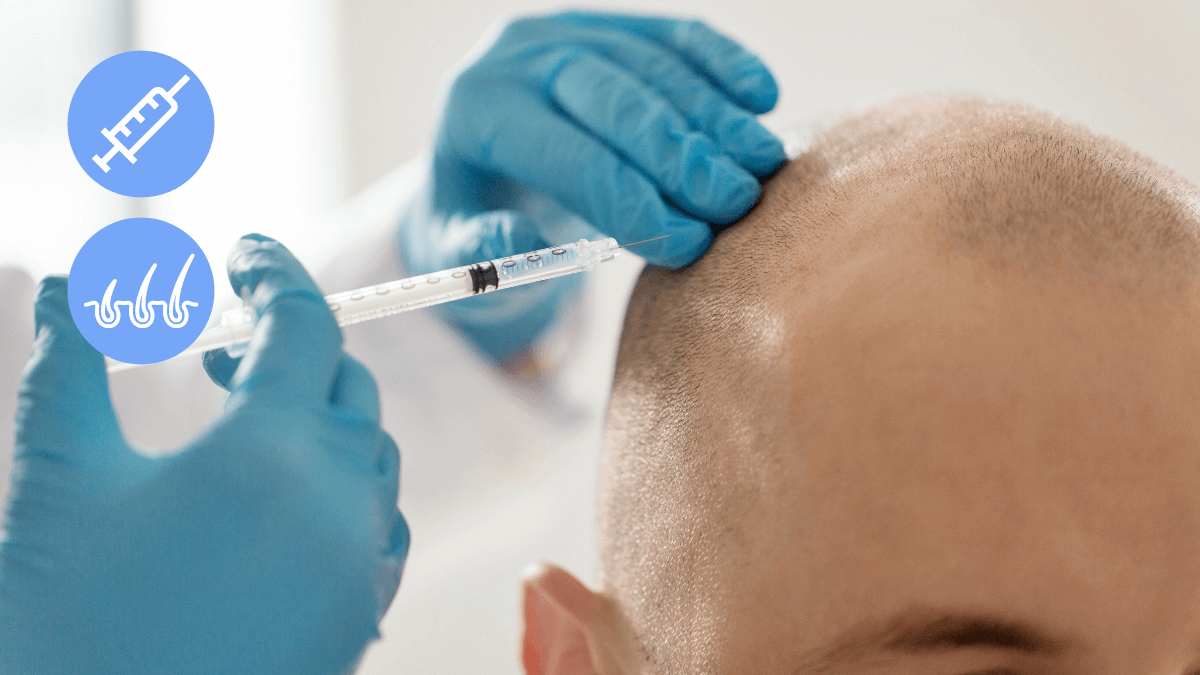TL;DR
➡ Mesotherapy is a debated medical process where supplementary medications are injected directly into your scalp’s innermost layer.
➡ Although the clinical studies are limited, Mesotherapy shows great effectiveness due to its healthy ingredients such as Dutasteride, biotin, vitamins, and minerals.
➡ Similarly, its documented side effects are hard to determine and contain many possibilities. However, there have been an increasing number of studies in recent years that define some of them.
➡ Positive studies showing its efficacy have increased, but it is still difficult to say whether they will work for you, so it is best to advise your doctor on using them, and if you decide to do so, combine them with more well-known methods.
There are various methods and practices for promoting hair growth and stopping hair loss.
While some of these are clinically proven to work, a significant number of them are still debated due to having less scientific research compared to others.
Mesotherapy is one of the latter methods, both as a general technique and in treating hair loss.
That is why, in today’s article, I will quickly inform you about what Mesotherapy really is and how effective it is as a dermatologist doctor who specializes in treating hair loss:
Table of Contents
I’ll also offer a better (scientifically proven) way of treating hair loss at the end, but let’s start by understanding Mesotherapy first:
What Is Mesotherapy?
Mesotherapy is a basic and non-surgical medical procedure where supplementary solutions and medications are injected into the hypoderm, the innermost layer of skin on your body. The procedure is done with small injections of said substances, and desired outcomes such as fat loss and hair growth can be achieved.
The term itself is from Greek, as mesos means middle and therapia means therapy.
Background
While the term “Mesotherapy” was first introduced by the French press in 1958, Dr. Michel Pistor invented the technique in 1952.
Pistor founded the French Mesotherapy Society in 1968, and later, in 1987, Mesotherapy was recognized by the French National Academy of Medicine as a specialty of medicine.
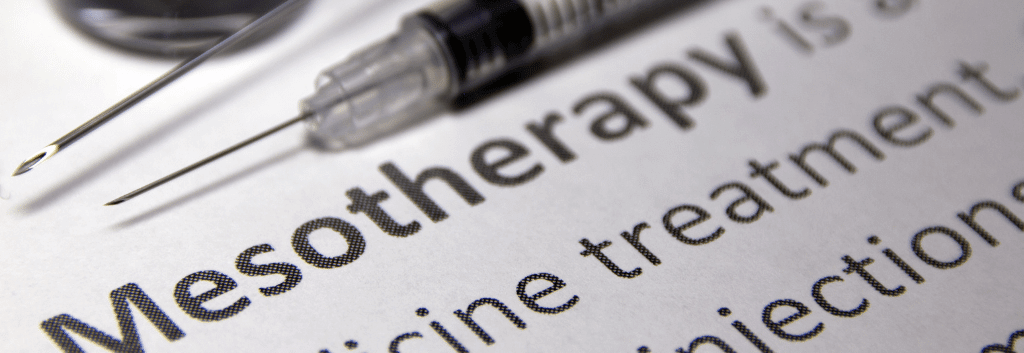
Although there have been and still are many physicians across Europe, Asia, and Africa practicing and supporting Mesotherapy, numerous experts in North America have questioned its efficacy and challenged the field due to a lack of research.
Mesotherapy Injections for Hair Loss – How Does It Work?
In a Mesotherapy procedure, a certain substance of a mix of different substances and medications is injected directly into the inner layers of your skin.
When it comes to treating hair loss, Mesotherapy procedures mainly focus on the scalp area, and injections mainly consist of ingredients that support and supplement hair growth, such as;
- Dutasteride,
- dexpanthenol,
- biotin,
- vitamins,
- minerals,
- elastin,
- collagen,
- vasodilators,
- plant-based nutrients.
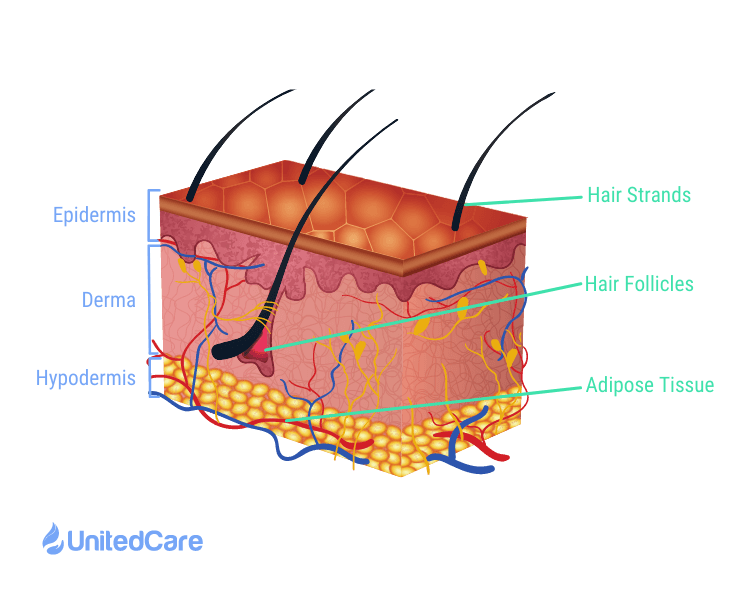
It aims to combat hair loss by providing your hair follicles with the necessary nutrients and helping them quickly grow thicker and healthier hair strands.
Based on the clinics that offer this service, multiple sessions are needed to see the results. Usually, there is little to no pain involved during a Mesotherapy session, and a single session lasts around 30 minutes.
Costs of Mesotherapy for Hair
Actually, there is no clear pricing on Mesotherapy procedures that are aimed at reversing hair loss. But, depending on the average session cost of different cosmetic procedures, Mesotherapy is likely to cost around $150-$450 a session.
Since you are expected to show up for a session once or twice a week, you can expect to pay $600-$3600 a month or $2400-$14400 for the whole treatment, which takes around 4 months to complete based on the packages various clinics offer.
Side Effects of Mesotherapy
There is very limited research focusing directly on the adverse reactions and effects of using Mesotherapy for hair growth. So, it is difficult to put a specific list on the table.
However, clinical observations and recent studies show that its non-specific common side effects are mostly similar to the side effects of Mesotherapy in general, which include:
- Edema
- Itching
- Nausea
- Diarrhea
- Swelling
- Vomiting
- Redness (erythema)
- Rashes and scarring
- Mild pain around injection sites
- Bruising and bumps at the injection sites
- Increased skin sensitivity (hyperesthesia)
- Pain and/or burning sensation on the skin
💡 At first glance, the list may seem vast and scary, but bear in mind that this is mostly due to the fact that the research about mesotherapy and its side effects, especially in treating hair loss, is still relatively small. So, we have yet to distinguish common side effects clearly from patient-related conditions.
Does Mesotherapy Really Work for Hair?
It is still too early to give a definitive answer to whether Mesotherapy is effective in treating hair loss. Due to a limited number of clinical research, this question has become a highly controversial topic among physicians.
That being said, the rising number of studies in the last years show positive signs:
What Do the Studies Say?
When it comes to clinical trials and studies, new studies have emerged in the last few years that have shown exciting results regarding Mesotherapy’s effects.
A 2013 Study From Egypt on 90 Patients With Androgenetic Alopecia
🔵 In this clinical study, 90 patients went through nine sessions of Mesotherapy focusing on the balding areas on their scalps.
🔵 They were divided into three groups: The first group received pure Dutasteride, the second group received a mixed solution with Dutasteride, and the third group received a saline solution for the placebo effect as the control group.
🔵 A week after the 9th session, patients injected with pure Dutasteride and a Dutasteride solution showed reduction and cessation of hair loss and promotion of new hair growth.
🔵 Patient ratings were also significantly higher in the first two groups where Mesotherapy was applied with actual solutions aimed at hair growth.
A 2019 Study From India Comparing Mesotherapy and 5% Minoxidil on 49 Patients With Androgenetic Alopecia
▶️ In an RCT, 49 patients with male pattern baldness were randomly divided into two groups to better understand how Mesotherapy compared to products containing Minoxidil.
▶️ The first group was asked to apply 5% topical Minoxidil twice a day for 4 months, whereas the second group went through 8 sessions of Mesotherapy, 2 weeks apart.
▶️ The group that went through Mesotherapy sessions had significantly better improvements in terms of hair shaft diameters, meaning their hair strands grew thicker than the other group. Other than that, patients in both groups received the same results.
▶️ Results suggested both Mesotherapy and Minoxidil work at the same effectiveness.
A Randomized Controlled Trial From 2019 Comparing the Efficacy of Mesotherapy and Topical Minoxidil on 30 Patients
🔵 In this randomized study, 30 patients with pattern hair loss were randomly divided into two equal groups with both the genders and different ages.
🔵 One group applied topical %5 Minoxidil lotion twice a day, the other was injected with Mesotherapy once weekly.
🔵 The study took 12 weeks, and focused on assessing the effectiveness of the treatments and the satisfaction of the patients.
🔵 Despite the numbers beings very close, in both fields, Mesotherapy had higher rates than Minoxidil. Patients in the Mesotherapy group had a higher satisfaction rate, and the average rate for hair regrowth was higher.
A 2022 Study on 527 Patients Using Different Methods Within the Literature
🔵 To truly test the capabilities of Mesotherapy, researchers took 336 different articles with different trial and study techniques, and after a thorough selection progress decided on 12 of them.
🔵 Then, to get a wide scale of patients with different backgrounds, they have collected a total of 253 males and 274 females to perform in randomized control trials, nonrandomized controlled trials, and observational studies.
🔵 This extensive effort also didn’t forget to exclude the effects of the placebo effect, and also show that the treatment’s potency increased intently when combined with other treatments such as Finasteride or Minoxidil.
🔵 Ultimately, this wide study has found that Mesotherapy showed a great potential in boosting hair regrowth while showing only mild, reversible, and localized side effects.
All of these studies show great promise, but still, let’s not forget:
Clinical Studies Are Still Quite Limited
The studies I’ve just mentioned are among the very few sources that focus on Mesotherapy as a treatment for hair loss.
Mesotherapy shows great potential, especially now more than ever. However, until it gets more support from various researchers and recognition from FDA, it will continue to remain a doubted procedure.
Ultimately, compared to other treatments such as hair transplants, Finasteride, or Minoxidil that have hundreds of studies going back decades, these studies we have about Mesotherapy are still low in numbers.
My Opinion
I have been actively using Mesotherapy in my clinical practice for various hair loss conditions since 2013.
Based on my observation of a high number of patients, I can confidently say that the long-term Mesotherapy program has given very good results in patients suitable for this specific treatment.
Hair Transplant Surgeries at UnitedCare – Effective and Certain Solution to Hair Loss
At UnitedCare, we’ve adopted a holistic approach to a much better and more effective solution to hair loss and hair transplants.
From the first examination to long after your operation, we’re with you, providing you and your body with everything necessary to get your looks back.
Address the Causes of Hair Loss 🩺
Starting with the first examination, we understand and diagnose the causes of your hair loss.
Then, we evaluate your options and decide on the best course of action for you together.
Restore Your Hairline With a Dermatologist 🥼
Hair loss is a medical condition that affects both your appearance and mental health; only a dermatologist doctor can effectively treat it according to the characteristics of your body, skin, and hair.
At UnitedCare, our dermatologist doctors approach your condition with the intention of helping you live the rest of your life without worrying about hair loss.
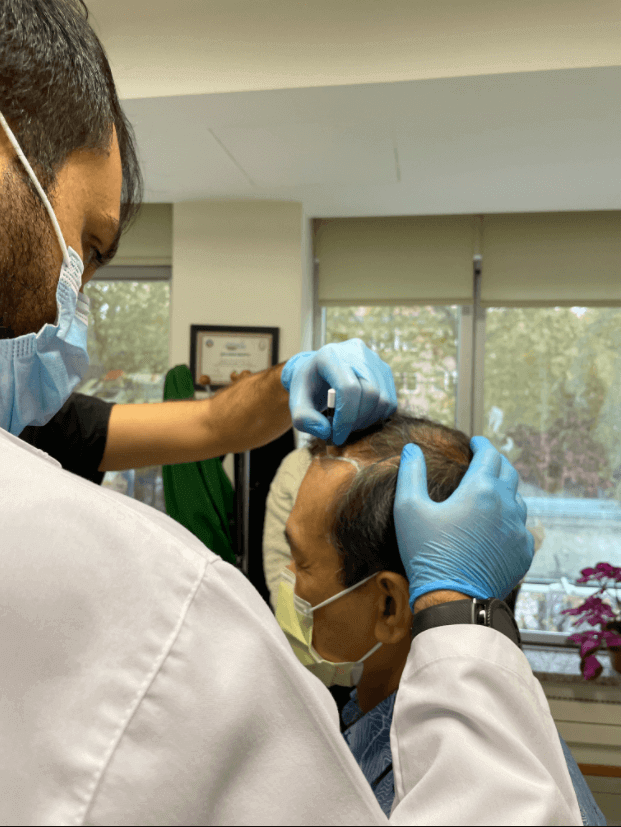
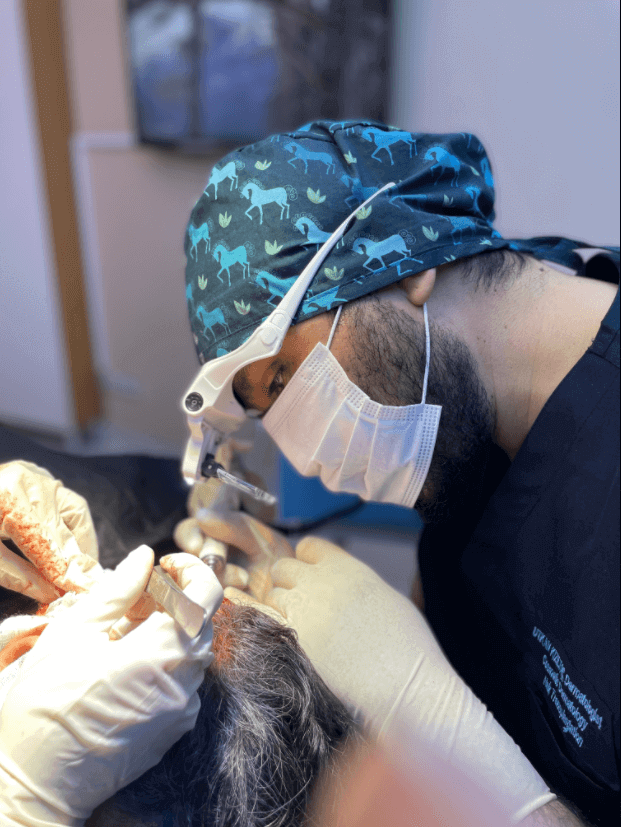
Hair Transplant Surgeries With Advanced Techniques and Technologies 💉
Hair transplants have come a long way since the 1950s when they were first invented, yet most clinics still use outdated methods and equipment.
We use Sapphire FUE, DHI transplants, bio-enhanced hair transplants, and various other techniques and technologies applied by the top clinics worldwide during the surgery.
Best Results Come With the Best After-Care 👱♂️
To get the best results, you need to apply the right medications, practices, and habits before and after the surgery.
We adopt and suggest scientifically proven ways and products to boost your recovery and improve the chances of your hair transplant’s success with regular check-ins after the surgery.
👇 You’re one click away from getting your hair back:
Restore your hairline with the right clinic.
Ensure the success of your hair transplant with our holistic approach to surgeries and dermatologists:
Frequently Asked Questions (FAQs)
How long does Mesotherapy last for hair?
Although there is no scientific research behind the lasting effects of Mesotherapy on hair loss since it injects a limited amount of supplementary substances under the skin and requires more, you are likely to see increased results from your Mesotherapy sessions if you continue.
Which is better for hair: Mesotherapy or PRP?
Both Mesotherapy and PRP procedures work under similar techniques, but PRP has a solid background of scientific backing from various clinical studies and researchers.
What are the side effects of Mesotherapy?
We have limited research about the side effects of Mesotherapy. So, it is difficult to clearly assess them all. However, recent studies were able to collect these: Edema, itching, nausea, diarrhea, swelling, vomiting, redness (erythema), rashes and scarring, mild pain or bruising and bumps at the injection sites, increased skin sensitivity (hyperesthesia), pain and/or burning sensation on the skin. The list may seem vast, but keep in mind that this is mostly because the research about mesotherapy’s side effects is still relatively small. So, we have yet to distinguish common side effects clearly from patient-related conditions.
